Today is my first day of retirement. I’ve e-signed all the paperwork; there was a (virtual) going-away party; my computer no longer accepts my work login. I spent September “on vacation” with the idea that my last day would be at the beginning of October so as to extend my healthcare coverage another month.[1] And so it has come to pass.
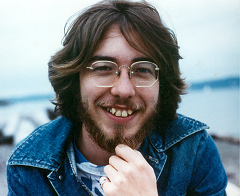 Grad school, 1980
Grad school, 1980I spent just over 41 years in the tech industry, which was sort of accidental. I had moved to Seattle in 1979 to go to grad school at UW. At the end of my first year, one of my fellow students asked “Hey, do you need a summer job?” And so I ended up working for a company that provided litigation support: outsourced computer-based facilities for law firms. For us, this mostly consisted of reading and “coding” documents (onto paper forms) for things that the lawyers were looking for.
The woman who ran the company had an interesting approach to hiring the minions for this job: she hired only graduate students, it didn’t matter what major. Her theory was that graduate students had shown that they knew how to read carefully and critically. We read depositions, real-estate sales documents, all sorts of stuff. Most of it wasn’t that interesting, and our role was very specific, namely to look for keywords or particular numbers or other small details. As it happens, this was good training for my later career, though of course I didn’t know it then.
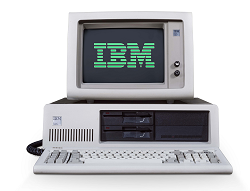 When my TA position ran out at UW, I went to work full time for that same company. The timing was fortunate. The IBM PC had just come out, and law firms were interested in what they could do with this new device. Our company quickly created a couple of document-management products, and I ended up doing support and training and even some programming.
When my TA position ran out at UW, I went to work full time for that same company. The timing was fortunate. The IBM PC had just come out, and law firms were interested in what they could do with this new device. Our company quickly created a couple of document-management products, and I ended up doing support and training and even some programming.
From there, my career was similar to that of many others. I moved from this startup to another to another. One of the companies afforded me and the family an opportunity to spend a couple of years in the UK.
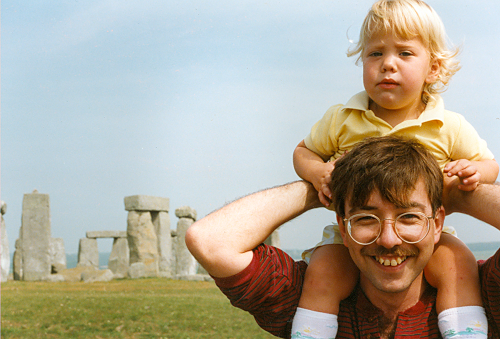 With my daughter at Stonehenge in 1990
With my daughter at Stonehenge in 1990
At some point I moved from being a kind of roving generalist into being a documentation writer. This was back when we still included printed documentation with a product and had to worry about page counts and lead time for printers and bluelines.
In 1992 I got a job with one of Paul Allen’s software companies (Asymetrix), and when that company started teetering, I moved to Microsoft.
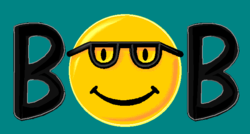 I spent 17 years there in all. I had a brief period in Microsoft BoB, a product that was mocked out of the marketplace (but that imo had a lot of very good ideas behind it). I spent the rest of my Microsoft career in the Developer Division, working on a bunch of products that had the word “Visual” in their name: Visual Foxpro, Visual Interdev, Visual Basic, Visual Studio.
I spent 17 years there in all. I had a brief period in Microsoft BoB, a product that was mocked out of the marketplace (but that imo had a lot of very good ideas behind it). I spent the rest of my Microsoft career in the Developer Division, working on a bunch of products that had the word “Visual” in their name: Visual Foxpro, Visual Interdev, Visual Basic, Visual Studio.
About halfway through my Microsoft stint, one of the editors retired, and I made a pitch to the manager of the editing team that she should bring me on as an editor. She took this chance, and so I embarked on a formal career as an editor; I alternated between writing and editing for the rest of my time.
When Microsoft had exhausted me, I followed some former colleagues to Amazon as a writer in AWS IAM, a cloud authentication/authorization technology. Unlike some people, I had a good experience at Amazon. Even so, when I was offered a chance to work as a writer at Tableau, I took that. And from there I again followed more colleagues and moved to Google, where I spent just over 6 years editing solutions and related materials, and trying to figure out how to leverage the work of about a dozen editors across a team of hundreds of writers.
Blah-blah. :)
I appreciate that there was a lot of luck in my career. I was in the right place (Seattle) at the right time (start of the PC industry). I had just enough background, namely a smattering of experiences with FORTRAN and BASIC. Opportunities came up at the right time (a summer job, a retiring editor). People repeatedly gave me chances or offered opportunities or made career-changing suggestions. My friend Robert (also a writer/editor) and I have over the years kept coming back to this theme: how just plain fortunate we've been in our careers.
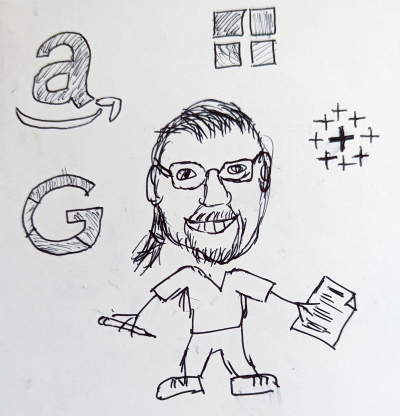 Portrait by friend Robert
Portrait by friend RobertI have no regrets about my career. Way back when I was an undergraduate and taking a class in BASIC, the prof casually asked me whether I’d considered a computer science major. Oh, no, was my answer—my math debt was so vast that I would have spent years of coursework just to meet the math prerequisites. And so I pursued the humanities and am very happy to have been able to do so, and I like to think that I was able to blend what I learned in school with what I learned on the job.
The tech industry has its issues, no doubt. But for me, at least, it also offered an opportunity to work with many, many smart people who were doing interesting things at world-class companies. Above all—and this is a cliché, but it’s still true—I’m going to miss working with the people.
People ask what I’m going to do in retirement. I kind of kid when I tell people that the first thing I’m going to do is learn to not work. But there’s a grain of truth there. I have many interests, but which ones I’ll really get into, and whether there are other, new interests that I’ll develop, remains to be seen.
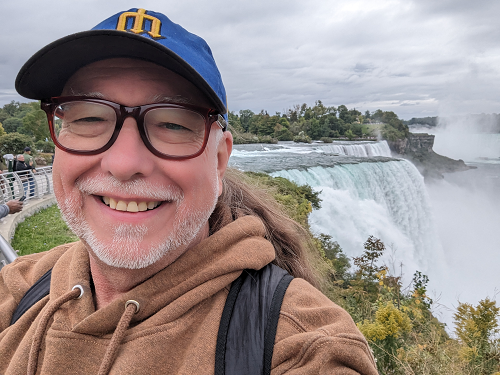 Retired and traveling
Retired and traveling